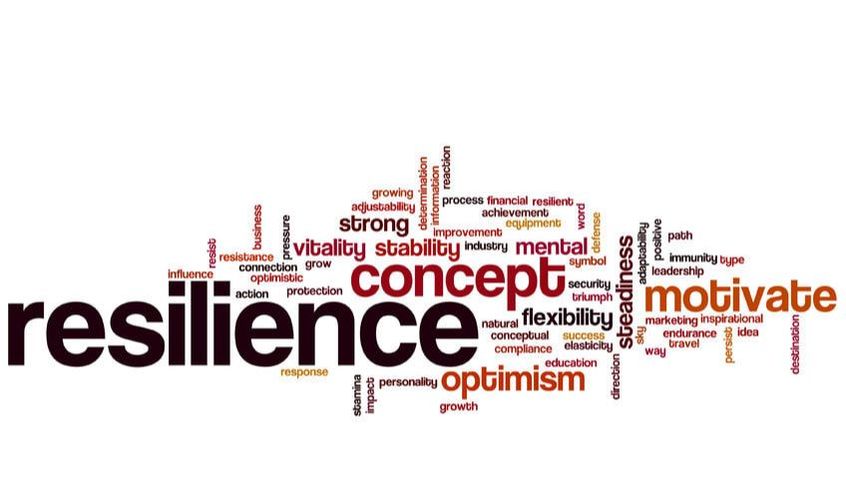Resilience
How well an animal can adapt to events in their life
After a recent overseas trip to South Africa in which we experienced a negative part of society involving an armed robbery I have considered even further the importance of resilience in both ourselves and the animals we work with.
But what is resilience? Resilience is the ability to adapt well in the face of adversity, trauma, tragedy and other significant sources of stress. (McConnell, 2016)
This is often compared to those that shutdown or get “stuck” after an event and cannot move forward and recover.
What affects an animals resilience? Things to be taken in to account include genetic makeup, early exposures and the current situation.
Now in all honesty especially when relating to our animals (but hey this article is for both humans and animals), we don’t have a lot of control over the genetics that make up our animals, or even the first few weeks of their lives. However, what we can control is the environment.
So now that we know what resilience is, how can we increase resilience?
If you know your animal (this could be human) has a particular strong trigger that results in fear etc, reduce or eliminate exposure until you can control the exposure to the triggers. When working with the triggers work at the animal’s own pace. Allow time and gradually increase criteria and duration etc with exposure to the trigger.
Build confidence by completing tasks the animal finds fun. For our companion dogs this could include scent work or trick training. Remember to finish when they are succeeding, and if they are struggling, to take a step back and ensure they can succeed.
Getting out and about in nature if possible. Now for some of our reactive dogs this may not be possible etc, however, picking a quiet time to wander for 5-10 minutes in the front yard or on the foot path can be a huge benefit (again concentrating on avoiding triggers). Possibly drive to a quiet location, wind down the window or let them have a short sniff and head home again. The trick is to keep it short and positive.
Social friendship and support is also important – for our dogs this could be social facilitation (with other dogs if this is something that they find enjoyable), but importantly this does not mean they must have a dog friend. I know several that would prefer not to be with other dogs. However, YOU are their social support. Be kind, predictable and fun etc. Reassure them when they are feeling uncomfortable (remember you cannot reinforce fear) and be there to support them when needed. Remove them from situations they find overwhelming if you have not been able to prevent it in the first place.
We must ensure that our animals have a sense of safety. A known safe environment and safe people etc that surround them.
Allowing our animals to also make choices will further increase their resilience. This can include asking them to engage in a quick training session etc and allowing them the choice to say no and walk away. If they do choose to not engage, that is ok, don’t feel bad. They also don’t earn the reward they would have for engaging. It was their choice. Allow choice to some extent (taking in to account safety for both you and your dog) etc on walks. Let them guide you (with polite leash skills etc) and direct where they want to walk and smell.
Relationships that are solid, are ones built on a foundation of trust. These are not usually built overnight, and many will take weeks, months or years to build. However, what you should remember to do is make deposits daily in to the trust account by interacting with the animal in a positive way. Doing so will result in greater trust, and an animal that has confidence in you and is trusting in your decision. Avoid making withdrawals unnecessarily (use of physical or psychological punishers etc), so that if at any stage you need to make a withdrawal (vet visit may be example) there is plenty left in the bank.
Simple things can increase resilience.
The more control an animal feels he has over his own environment and the ability to be able to communicate (training) his needs, the easier he will find it to make good decisions and the more resilient he will be. (Simply Behaviour, nd)
Please make a coffee or tea, sit down and take the time to watch and listen to this webinar by Dr Patricia McConnell https://vimeo.com/182983433
Be kind to yourself and the animals you work with.
References
Co, H. (n.d.). What is Resilience? | Psych Central. [online] Psych Central. Available at: https://psychcentral.com/lib/what-is-resilience/ [Accessed 7 Jul. 2018].
Martin, S. (n.d.). Does your Parrot have a Trust account?. [ebook] Available at: https://www.parrots.org/pdfs/all_about_parrots/reference_library/behaviour_and_environmental_enrichment/PS%2019%201%20Feb%2007%20Parrot%20Trust%20SM.pdf [Accessed 7 Jul. 2018].
McConnell, P. (2016). Building Resilience in Dogs. [online] ASPCA Professional. Available at: https://www.aspcapro.org/webinar/20160915/building-resilience-dogs [Accessed 7 Jul. 2018].
Simply Behaviour Dog Training Courses. (2018). The Neuromechanisms Of Resilience & Why It Is Vital To Dog Behaviour - Simply Behaviour Dog Training Courses. [online] Available at: http://www.simplybehaviour.com/the-neuromechanisms-of-resilience-why-it-is-vital-to-our-dogs/ [Accessed 7 Jul. 2018].
Simply Behaviour Dog Training Courses. (n.d.). The Neuromechanisms Of Resilience & Why It Is Vital To Dog Behaviour - Simply Behaviour Dog Training Courses. [online] Available at: http://www.simplybehaviour.com/the-neuromechanisms-of-resilience-why-it-is-vital-to-our-dogs/ [Accessed 7 Jul. 2018].
But what is resilience? Resilience is the ability to adapt well in the face of adversity, trauma, tragedy and other significant sources of stress. (McConnell, 2016)
This is often compared to those that shutdown or get “stuck” after an event and cannot move forward and recover.
What affects an animals resilience? Things to be taken in to account include genetic makeup, early exposures and the current situation.
Now in all honesty especially when relating to our animals (but hey this article is for both humans and animals), we don’t have a lot of control over the genetics that make up our animals, or even the first few weeks of their lives. However, what we can control is the environment.
So now that we know what resilience is, how can we increase resilience?
If you know your animal (this could be human) has a particular strong trigger that results in fear etc, reduce or eliminate exposure until you can control the exposure to the triggers. When working with the triggers work at the animal’s own pace. Allow time and gradually increase criteria and duration etc with exposure to the trigger.
Build confidence by completing tasks the animal finds fun. For our companion dogs this could include scent work or trick training. Remember to finish when they are succeeding, and if they are struggling, to take a step back and ensure they can succeed.
Getting out and about in nature if possible. Now for some of our reactive dogs this may not be possible etc, however, picking a quiet time to wander for 5-10 minutes in the front yard or on the foot path can be a huge benefit (again concentrating on avoiding triggers). Possibly drive to a quiet location, wind down the window or let them have a short sniff and head home again. The trick is to keep it short and positive.
Social friendship and support is also important – for our dogs this could be social facilitation (with other dogs if this is something that they find enjoyable), but importantly this does not mean they must have a dog friend. I know several that would prefer not to be with other dogs. However, YOU are their social support. Be kind, predictable and fun etc. Reassure them when they are feeling uncomfortable (remember you cannot reinforce fear) and be there to support them when needed. Remove them from situations they find overwhelming if you have not been able to prevent it in the first place.
We must ensure that our animals have a sense of safety. A known safe environment and safe people etc that surround them.
Allowing our animals to also make choices will further increase their resilience. This can include asking them to engage in a quick training session etc and allowing them the choice to say no and walk away. If they do choose to not engage, that is ok, don’t feel bad. They also don’t earn the reward they would have for engaging. It was their choice. Allow choice to some extent (taking in to account safety for both you and your dog) etc on walks. Let them guide you (with polite leash skills etc) and direct where they want to walk and smell.
Relationships that are solid, are ones built on a foundation of trust. These are not usually built overnight, and many will take weeks, months or years to build. However, what you should remember to do is make deposits daily in to the trust account by interacting with the animal in a positive way. Doing so will result in greater trust, and an animal that has confidence in you and is trusting in your decision. Avoid making withdrawals unnecessarily (use of physical or psychological punishers etc), so that if at any stage you need to make a withdrawal (vet visit may be example) there is plenty left in the bank.
Simple things can increase resilience.
The more control an animal feels he has over his own environment and the ability to be able to communicate (training) his needs, the easier he will find it to make good decisions and the more resilient he will be. (Simply Behaviour, nd)
Please make a coffee or tea, sit down and take the time to watch and listen to this webinar by Dr Patricia McConnell https://vimeo.com/182983433
Be kind to yourself and the animals you work with.
References
Co, H. (n.d.). What is Resilience? | Psych Central. [online] Psych Central. Available at: https://psychcentral.com/lib/what-is-resilience/ [Accessed 7 Jul. 2018].
Martin, S. (n.d.). Does your Parrot have a Trust account?. [ebook] Available at: https://www.parrots.org/pdfs/all_about_parrots/reference_library/behaviour_and_environmental_enrichment/PS%2019%201%20Feb%2007%20Parrot%20Trust%20SM.pdf [Accessed 7 Jul. 2018].
McConnell, P. (2016). Building Resilience in Dogs. [online] ASPCA Professional. Available at: https://www.aspcapro.org/webinar/20160915/building-resilience-dogs [Accessed 7 Jul. 2018].
Simply Behaviour Dog Training Courses. (2018). The Neuromechanisms Of Resilience & Why It Is Vital To Dog Behaviour - Simply Behaviour Dog Training Courses. [online] Available at: http://www.simplybehaviour.com/the-neuromechanisms-of-resilience-why-it-is-vital-to-our-dogs/ [Accessed 7 Jul. 2018].
Simply Behaviour Dog Training Courses. (n.d.). The Neuromechanisms Of Resilience & Why It Is Vital To Dog Behaviour - Simply Behaviour Dog Training Courses. [online] Available at: http://www.simplybehaviour.com/the-neuromechanisms-of-resilience-why-it-is-vital-to-our-dogs/ [Accessed 7 Jul. 2018].

